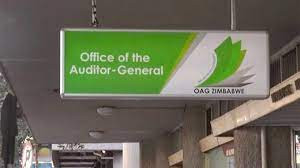
THIS week, the office of the Auditor General released its audit report on State-Owned Enterprises (SOEs) and parastatals for the financial year ended December 31, 2022.
And as usual, the report is damning.
In her report, acting Auditor-General Rheah Kujinga noted that there were 51 entities that had not yet submitted financial statements for audit. Among these, 24 entities had not also submitted 2021 financial statements while three entities had their accounts in arrears of more than five years. This is very serious and raises questions of what they might be trying to hide by not submitting their records for auditing.
The report also noted instances of weak oversight over internal controls as evidenced by unsupported expenditure, non-alignment of accounting policies and processes with reporting framework, non-acquittal of travel and subsistence allowances, inadequate controls on fuel management, non-performance of bank reconciliations and non-compliance with tax laws and regulations.
These are grave issues needing the government's attention.
The auditor-general reported a total of 170 governance issues compared to 81 raised in 2021. The governance issues can be addressed if there are frequent assessments of internal control systems of these entities. She noted 20 issues relating to procurement of goods and services and most of the issues relates to non-delivery of goods paid for. This is very disturbing. For instance, the Zimbabwe Revenue Authority paid ZW$209 million (about US$1,7 million at the time) for procurement of 35 Toyota Hilux double cab and 50 Toyota corolla vehicles on February 24, 2022. However, the supplier delivered 15 of the 35 Toyota Hilux and none of the 50 Toyota corolla vehicles. Even though the matter, according to the taxman, was referred for arbitration, the practice is unacceptable.
The Tobacco Industry and Marketing Board made payments to suppliers in advance for the delivery of a bus and computers for US$50 500 and ZW$1,7million, respectively. However, the goods had not been delivered by the time of audit.
The Zimbabwe Anti-Corruption Commission paid ZW$5,7 million (US$345 918) for the acquisition of 10 motor vehicles. However, only five vehicles had been delivered as at December 31, 2020. It is time for management to demand advance payment guarantees for any large prepayments or payments made after delivery. Otherwise, the embezzlement of taxpayer funds will continue. Those charged with governance and management, as Kujinga put it, should pay attention to the outstanding matters so as to address them and improve transparency, accountability, good corporate governance and service delivery. It is, therefore, imperative that SOEs and parastatals embrace provisions of the Public Entities Corporate Governance Act [Chapter 10:31] and incorporate these into their existing structures and processes. “I envisage a situation where the performance of State-Owned Enterprises and Parastatals will greatly improve if my recommendations and provisions of the said Act are implemented,” she said. The ball is now in the SOEs' and parastatals' court. They ought to follow through on these suggestions, and law should take its course for those found on the wrong side.
- Deforestation riles Lower Gweru chief
- Drunkard kills church pastor
- Mob kills two Gokwe men
- Gweru woman cries foul over sodomy case






